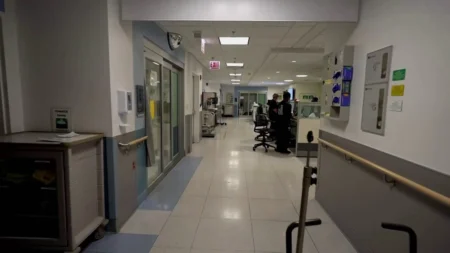Tanzania’s Ministry of Health is calling for greater awareness and care for people living with epilepsy. The condition is now one of the top three non-communicable diseases in the country, along with heart disease and diabetes.
Dr Omary Ubuguyu, Director of Non-Communicable Diseases, made the statement at an event held in Dar es Salaam. The ceremony marked progress in the Supporting Health, Social Inclusion, Nutrition, and Employment (SHINE) programme, which runs from 2023 to 2025.
He said that most epilepsy cases are caused by high fevers and injuries in early childhood. To reduce these risks, the government is focusing on safe motherhood and better child healthcare.
Dr Ubuguyu stressed the need to improve mental health and epilepsy care across the country. He said that health clinics must include more trained doctors and clinical officers, not just nurses. These steps will ensure better treatment for patients with epilepsy and other mental health issues.
He also pointed to a major drop in malaria cases. The national rate has gone down from 8 percent to just 3 percent, with some places like Zanzibar now below 1 percent. This drop is seen as progress in preventing conditions that can lead to epilepsy.
The Ministry confirmed its plan to keep supporting the SHINE programme. Dr Ubuguyu added that the medicines used under the project follow the country’s health treatment rules.
The event also featured key voices from the international community. Giuseppe Sean Coppola, the Italian Ambassador to Tanzania, said the end of the SHINE project marked a major milestone. Funded by the Italian Government, the project aimed to improve inclusion and disability care in Tanzania.
Coppola said SHINE reflects Italy’s strong ties with Africa. He noted that the project matches the goals of the Mattei Plan for Africa, a wide-reaching development strategy launched earlier this year.
Sara Pini, a technical expert from the Italian Agency for Development Cooperation, shared one of the project’s top achievements: the country’s first book on epilepsy care. The book offers both medical and cultural advice, with solutions tailored to the local context.
Valentina Decao, SHINE Project Coordinator and Tanzania head for Comunità Solidali Nel Mondo, spoke about the need for better training. She said health workers, teachers, and community members must be trained to spot epilepsy and support those who have it.
She stressed that public awareness is key to fighting stigma. Many people with epilepsy lose their jobs or face isolation because of misunderstandings about the condition. Training can help improve their lives by promoting better care and respect.
Decao also raised the issue of children with disabilities. Some of these children suffer from dysphagia, a problem with swallowing that can be made worse by the wrong kind of food. She called for special care and proper diets to help these children live safely.
The SHINE project has helped build a new path for healthcare and social support in Tanzania. As the country faces more epilepsy cases, officials and experts alike are urging strong action to prevent, treat, and support those living with the condition.







